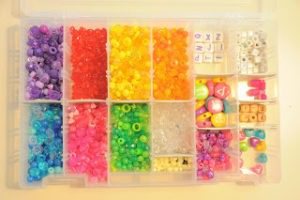Inheriting possessions from a loved one can sometimes feel less like a gift and more like a puzzle wrapped in emotional complexities. Whether these objects are steeped in sentimental value or hold significant monetary worth, dealing with them can often lead to an inheritance conundrum, especially when they don’t align with your personal lifestyle, taste, or space.
If you find yourself at the crossroads of wanting to honor the memory of the deceased but needing to part with their possessions, this guide offers a thoughtful approach to navigating this emotionally charged terrain.
Table of Contents
Evaluating What You’ve Inherited
Before making any decisions, take a moment to thoroughly evaluate what you’ve inherited. This evaluation is not just about assessing the physical items but understanding the emotional and financial implications they may carry. Ask yourself a series of questions: Does this item hold sentimental value? Could it be useful? Does it have any significant monetary worth? Answering these questions can help guide your next steps, whether that involves keeping, donating, selling, or disposing of the items.
Making The Decision to Part Ways
Once you’ve inventoried the inherited items, you may come to the conclusion that some or all of the possessions do not fit into your life. It’s essential to remember that deciding to part ways with inherited items does not diminish their value or your respect for the departed. It’s simply an acknowledgment of your current circumstances and needs.
The notion of ‘out with the old, in with the new’ doesn’t have to entail dispose of memories or sever ties with the past. Instead, it’s about making room for a future that respects the past but doesn’t feel overwhelmed by it. For example, you may decide to sell your old antiques that don’t serve a purpose in your home.
Donating and Recycling With Purpose
Selling isn’t the only option. Some inherited items might not have significant market value or might be too personal to feel comfortable selling. In these cases, donating to charity shops, local theaters for props, schools for educational purposes, or even families in need can provide a sense of purpose and fulfillment. Recycling is another thoughtful approach, particularly for items that are not in a condition to be used by someone else but can be repurposed or broken down responsibly.
Making Peace With Your Choices
No matter what path you choose, it’s essential to come to a place of peace with your decisions. It can be helpful to celebrate the memory of the person who left you these items in a way that feels genuine and unencumbered by possessions. This could mean dedicating a donation in their name, keeping a single item that holds significant sentimental value, or simply carrying their memory in your heart.
In the inheritance conundrum, there are no right or wrong answers; it is only what feels right for your situation. Whether you decide to keep, sell, donate, or recycle, the most important outcome is that you’ve made a decision that honors both the memory of your loved one and your personal circumstances. Remember, letting go of possessions and even selling them for cash does not equate to letting go of memories or love. It’s simply making space for new experiences and opportunities to cherish, with the past tenderly tucked into the fabric of your journey.
Featured Image by Michael Treu from Pixabay




